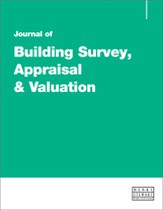Carbon reduction options for churches using oil for heating
Abstract
To limit global warming, a rapid reduction in the carbon emissions from our buildings is required. Heating buildings contributed to 17 per cent of the UK overall carbon emissions in 2018 which is why it is important we look to decarbonise the heating systems that serve our buildings. In 2020, only 7.9 per cent of the energy to heat our buildings came from renewable sources. In the UK, existing heating is predominantly by natural gas. The most significant challenge is the rural buildings that are not served by mains gas but have oil supplies, due to the high carbon content of this fuel. The Diocese of Gloucester was invited to participate in a research project carried out by Historic England into viable methods of low and zero carbon heating in churches and their associated buildings. The focus of this research explores oil-fired heating systems as this fuel produces more carbon dioxide emissions than other fuels used to heat buildings. The key finding from this research is that no single heating technology is recommended for either all historic buildings or even each historic building type. Across the six case studies, air source heat pumps, biomass and electric heating were recommended in an equal proportion of cases. It is not possible to determine the most viable heating technology without carrying out a detailed technical feasibility study at the early concept stage of a project. The recommended heating technology depends on many factors including the building’s site and location, the size and form of the buildings, the use and operation of the buildings, the condition of the existing heating system and the existing utility infrastructure. The wider background to this research includes the 2030 net zero carbon target set by the Church of England and the UK government’s 2050 net zero carbon target.
The full article is available to subscribers to the journal.
Author's Biography
Dan Mcnaughton MSc BEng(Hons) CEng FCIBSE MSoPHE is a Senior Building Services Engineer in the National Specialist Services Department at Historic England. He started his career in building services engineering over 20 years ago and has considerable design experience in most sectors, including heritage and places of worship. Dan has a passion for engineering, sustainability and historic buildings and enjoys working with all disciplines to achieve bespoke engineering solutions which are sympathetic to the historic character of older buildings. His role at Historic England is varied and includes advisory work, case studies, funding schemes, research, technical guidance and webinars. In addition to his role at Historic England, he also contributes to the Chartered Institution of Building Services Engineers (CIBSE) as an End Point Assessor responsible for assessing apprentices’ competence at the end of their apprenticeship. Dan is in the steering group of the CIBSE Retrofit in Heritage Committee which launched in 2022.
Citation
Mcnaughton, Dan (2023, June 1). Carbon reduction options for churches using oil for heating. In the Journal of Building Survey, Appraisal & Valuation, Volume 12, Issue 1. https://doi.org/10.69554/KSQV2514.Publications LLP
